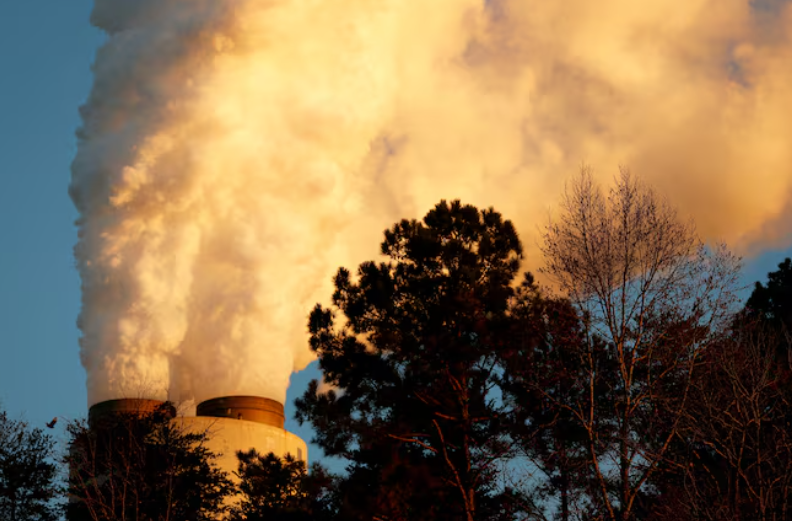A U.S. appeals court on Friday ruled that a regulation ordering deep cuts in power plants’ carbon emissions can go ahead while it considers a challenge from more than two dozen Republican-led states. The Environmental Protection Agency issued the rule, which applies to existing coal-fired power plants and any new natural gas plants.
The U.S. Court of Appeals for the D.C. Circuit in Washington, D.C. decided that a stay was not necessary because the states face no immediate harm, as the rule’s earliest compliance deadline is in 2030.
An EPA spokesperson expressed satisfaction with the ruling. West Virginia Attorney General Patrick Morrisey, who is leading the challenge, declared in a statement that the rule is unlawful and that he will seek a stay from the U.S. Supreme Court.
The rule, part of Democratic President Joe Biden’s broader climate agenda, mandates a 90% reduction in greenhouse gas emissions by 2032. States including Indiana, Ohio, and Kansas, as well as electric utility, mining, and coal industry trade groups, have challenged the rule.
To comply, the U.S. power industry, which produces nearly a quarter of U.S. greenhouse gas pollution, would need to install costly emissions control technologies or shut down the dirtiest coal-fired plants. The EPA has stated that the reductions are feasible if the plants install carbon capture and sequestration technology to prevent emissions from reaching the atmosphere.
The challengers argue that this method has not yet been meaningfully deployed and is too costly. They also assert that the EPA exceeded its authority by making the rule and needed explicit congressional approval to do so.

